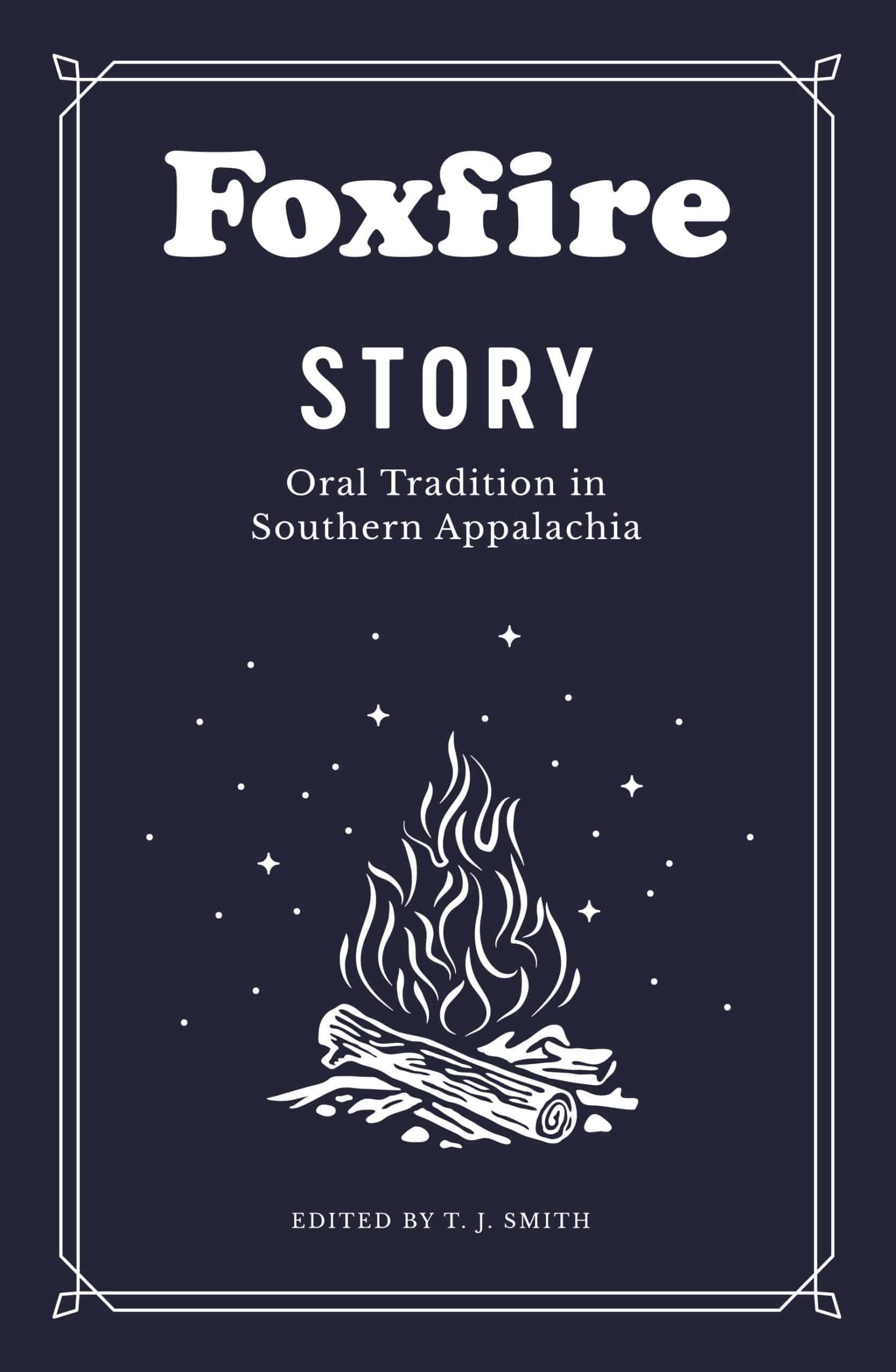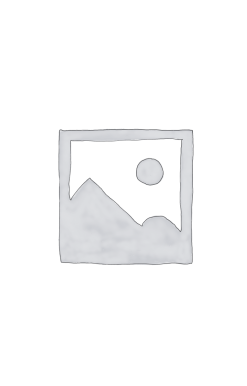Foxfire Story: Oral Tradition in Southern Appalachia
18.00 JOD
Please allow 2 – 5 weeks for delivery of this item
Description
Since 1972, the Foxfire books have preserved and celebrated the culture of Southern Appalachia for countless readers all around the world. In Foxfire Story, folklorist (and Foxfire director) T.J. Smith collects some of his favorite stories from the archives to illuminate the oral traditions that have been part of the culture of the mountains for centuries. Here are instances of mountain speech, proverbs and sayings, legends, folktales, anecdotes, songs, and pranks and jests, along with ghost tales and accounts of folk belief, as well as stories from half a dozen of the region’s finest storytellers. Through these examples, Smith examines the role storytelling plays in the Southern Appalachian community, identifying the rich traditions that can be found in the region and exploring how they convey a sense of place—and of identity.
Additional information
| Weight | 0.41 kg |
|---|---|
| Dimensions | 1.78 × 15.24 × 23.37 cm |
| PubliCanadation City/Country | USA |
| by | |
| Format | Paperback |
| Language | |
| Pages | 336 |
| Publisher | |
| Year Published | 2020-4-28 |
| Imprint | |
| ISBN 10 | 0525436316 |
| About The Author | Founded in 1966, FOXFIRE is a nonprofit educational and heritage preservation organization. Foxfire's learner-centered, community-based approach is advocated through The Foxfire Museum and Heritage Center and grounded in the Southern Appalachian culture that promotes a sense of place and appreciation of local people and their traditions as essential educational tools. T.J. SMITH is the president and executive director of The Foxfire Fund, Inc. and holds a Ph.D. in folklore from the University of Louisiana-Lafayette. |
"A spirited, entertaining collection of stories and traditions that bear emulating in other regions of the country." —Kirkus Reviews"Both timeless and curiously of the moment. . . . Folklore and timeworn tips from Southern Appalachian mountain dwellers collected in this latest tome from the beloved Foxfire series." —Garden & Gun |
|
| Excerpt From Book | Chapter OneMountain SpeechAny piece of verbal art—be it a joke or a folktale or an anecdote—is the sum of its parts. The foundational part of that sum is language. We could make analogies about houses or engines or some such here, but we think most folks can visualize the ways words come together to create ideas. In school, we learned vocabulary through weekly word lists. In the formal structure of our schooling, we learned about nouns and how they work, verbs and how they work, the function of adjectives, whatever the heck it is that adverbs do. Some, if not most, of us were even amazed by words and, at times, confounded by them. We struggled with the idea that there were rules, yet exceptions to those rules, for how words operate in our language. And, no doubt, we also came to understand that there were words we used—some of our very first words, words handed down to us from the most trusted sources, our friends and families—that weren’t recognized as “real” words in our schoolbooks.Those words, most often those of our grandparents and neighbors and immediate community, make up something we call “vernacular.” In the United States, we have distinct vernacular regions that possess varying and colorful words for everything under the sun—from toilets to soft drinks. For its part, there might not be a more colorful vernacular than that of the Southern Appalachians. As is the case with many rich, verbal cultures, Southern Appalachia is chock-full of wonderful words—some widely recognized, some not so much—used in everyday speech. Caricatured in the media, the Southern Appalachian vernacular is often ignorantly characterized as “backward.” In context, these words are poetic and full of wit. What’s more, they are necessary to fully experience the region’s oral tradition.Here, we provide a glossary of terms collected by Foxfire students in the early days of The Foxfire Magazine. Let this serve as a reference as you make your way through the stories, tales, jokes, and songs herein.all-overs: chills or nervousnessambure (amber): snuff or tobacco juicebad: to indicate excessive interest in something, as in “He was awful bad to get into the whiskey.”battlin’ stick (also, “punchin’ stick”): used to beat dirt out of clothes before washing them in an iron potbiddy (also, “doody” or “diddle”): young chickenbig eye: unable to sleep, insomniablue-john: milk without creambranch: small streambritches: harness for a mulebroadcast: scatter over, as in broadcasting manure over a gardencan-house: smokehouse or storage area for meats and canned goodscatty-whompus: something lopsided; hanging or sitting crookedcellar: a room at ground level (not necessarily under the house) used for storage of canned foods, potatoes, etc.cent: bit, as in “don’t care a cent for,” meaning, “I don’t mind it a bit”chinquapin: money; change, as in dimes, quarters, etc.choke-rag: necktiechunk: small; as in, “I was just a chunk of a boy”clodhoppers: boots or heavy shoescommodities (also, “mullicans”): foods given to individuals by the governmentconfidence (verb): to trust; as in, “Can I confidence you?”cornfield beans: beans that grow up cornstalkscounterpin (also, “counterpane”): bedspreadcountry Cadillac: pickup truckcrawdad: crayfishcrossways [of each other]: to be in disagreement; to disagreediscomfit: to inconvenience someone; to put someone out in any waydodger (also, “turn of bread”): a cooked pan of cornbreaddog-irons (also, “fire dogs”): the two irons used to support wood in the fireplacedonie: a young girl; a young womandoublebait [that]: request to have something repeateddough-sop: bread soaked in gravyfireboard: the mantel above the fireplacefist-and-skull [fight]: bad fightfleshy: fatflint rock: quartzfogeyism: something considered nonsense or superstitiousgalouses: suspendersgee-whiz: a type of plowgit-fiddle: term for guitar in the context of old-time string musicglib: active; young acting, as in “She’s pretty glib to be as old as she is”go-devil: a maul; a wood-splitting toolgooseneck: a garden hoegrabble: to harvest young potatoeshaints: ghosts or spiritshard: bad, as in “I’m awful hard to remember names”haul-off: to act; make an action, as in “I’m going to haul-off and take these books to the library.”heart dropsy: down at heart; to not have the will or spirit to forward an actionhearthrock: a large rock at floor level that extends out in front of the fireplace, acting as a hearthhissy: a fit; acting very upset, as in “She had a hissy because I dropped the bread”holp: past tense of “help”jack beans: lima beanskindlin’: small pieces of dry wood used to start a firelarrupin’: to taste very goodlatchpin: safety pinloaded for bear: to mean business; overloaded, or loaded to the toplobberin’: to go wanderinglong sweetenin’: honeymean’ness: as in, “lowdown meanness”; getting into trouble or mischiefmeetin’: a church service, as in “goin’ to meetin’ ”mink-mink: rabbitnary: not any, none, and the like, as in “I didn’t see nary a one.”no rate: spread around, as in “Don’t no rate it!”no such a (also, “no such of a”): as in “I never seen no such a thing in my life.”noted fact: a proven fact; disreputable factpainter: pantherpianner (also, “pie-anna”): pianopiazza (also, “pie-azzer”): a front porchpoke: a brown paper sackpokin’ stick: a fire poker; a stick used to stir coals in a firepole axe: hatchetpoppin’ [one’s teeth]: to be angrypoppycock: an “unnecessary” gathering, as in a dance party or similar social eventquietus: to make someone back down or give up an argumentrheumatism medicine: moonshineride a broom: to sweep a floorroastin’ ears: ears of unshucked cornrudimentals: a portmanteau of “rudiments” and “fundamentals”sallet: turnip greenssawmill gravy: gravy made with cornmeal instead of flourshort sweetenin’: sorghumslick foot: to not be able to sleep at nightsmooth your feathers: a command, meaning “comb your hair”snake feeder: a dragon flysoak-toddie: biscuits soaked in coffee, eaten for breakfastspittin’ fire: to be angry; to express angersplatterment: a mess or a fight, as in “You’ve never seen such a splatterment in all your life.”switchell: a drink made from vinegar and honeythumpin’ gizzard: one who appears heartless; someone who does evil thingstote: to carryundoes: to upset someoneup your trotter: to fall or slip to the groundvittles (also, rations): foodwag: to carry somethingwasper: a wasp or hornetweathercock: a weathervanewhatnots: three-cornered shelveswhenever: when, as in “He was there whenever I went.”whet-rock: whetstone; a stone used to sharpen kniveswhite tops: daisieswitches foot: a peace signyankee dime: a kissyoung sprouts (also, “tads”): young boysChapter TwoProverbs & Sayin’sIf you’ll allow it, we’d like to carry over the grade-school analogy from the previous chapter. In grade school we learn words and their functions and how they come together to form ideas, or sentences. In oral traditions, a culture’s vernacular comes together in the same way to give us some of the most fundamental pieces of the verbal art puzzle. Colloquial expressions, or “sayings,” are a great example of the colorful way in which a folk group negotiates the world. Through these sayings, we can learn a great deal about cultural communities—everything from how they may relate to the natural world (“hollow as a gourd”) to the occupations that make up their economies (“Sharp as a pegging awl”). These expressions are very much rooted in place and connected to all the ways in which people pass their time on the earth.The next step up from the colloquial expression is the proverb. You will undoubtedly recognize some of these even if you’re not from Southern Appalachia. Many of the proverbs that pop up in our regional ethnographic collection have their roots in the Old World and show up wherever immigrants to the New World landed and put down roots. Proverbs have an uncanny way of simplifying the world in commonsense terms (no doubt why they are so often used by our grandparents when we are small). Like any verbal art form of any merit, proverbs are full of great wit and often appear as a clever turn of phrase.ExpressionsOne of Foxfire’s aims since its founding has been to record patterns of speech that are distinctive in the mountain regions. The following is a portion of the material that we have gathered in the last year from the northern portion of Rabun County and the southern portion of Macon County, North Carolina. All were recorded in an area about fifteen miles in diameter, and all are ones that we have heard personally and so we know to be authentic. Underscoring, where it occurs, indicates voice emphasis.Most typical among the many people we have talked with, and heard with great frequency even among students in high school and grade school, are expressions like the following:•“the first” or “number one” for “a single one” as in “I went looking, but I didn’t see the first sang plant.” “He didn’t give me dollar number one for all that work I did yesterday.”•“caution” in reference to something to marvel at, often in jest, as in “It’s a caution all right,” or, “He’s a caution, he is.”•“care” for “mind” as in “I don’t care to tell you,” which actually means “I don’t mind telling you at all.” Similarly, “I don’t care for you to do it” means “I don’t mind if you do it.” “I don’t care for him to come around” means “I don’t mind if he comes around whenever he wants to.”•Inversion of word order is frequent. “Ever I saw,” for example, is a common usage for “I ever saw,” as in “Hit beat ary locust that ever I saw for splittin’.”•“the like of” for “as many as” or “as much as”—recently a man was talking to us about a huge still he ran across, and he exclaimed, “I never have seen the like of mash boxes since God made me in this world!”•“directly” for “soon,” and “fairs up” for “clears up” (as in weather). One example: “If it fairs (pronounced fars) up a little directly, I may want you to go help me move the sheep.”A people with strong roots in the land will naturally use descriptive figures of speech that reflect this background. Some that we hear frequently are the following:•“fine as frog’s hair”•“mean as a snake”•“silly as a goose”•“fast as greased lightning”•“nigh as a pea” (meaning very close to)•“hollow as a gourd”•“slick as a butterbean”•“white as a snowball”•“steep as a horse’s face”•“tender as your eyeball”•“tough as a pine knot.”•When one is invited to dinner, the host sometimes says, “It may not fill you up, but it’ll keep you from going hungry.” If there is no food in the house, he may say, “I’d sit up with you all night before I’d see you go to bed hungry.”Other expressions are heard much less frequently, or are even once-in-a-lifetime comments, but they still ring of the mountains and their people. Such expressions or quotations that we have recorded are like the following:•“He doesn’t do enough work to break the Sabbath.”•“He’s so deaf, he can’t hear a clap a’thunder.”•“devilish as a cocked gun”•“straight as a rifle barrel”•“slick as a ribbon”•“Ask and you’ll always have welcome.”•“She hung on to them like Grant hung around Richmond.”•“A road’s got to go somewhere, and us boys has just naturally got t’follow.”•“Jesse James used to rob you with a gun. They do it with a lead pencil now.”•“Everything that grows was put here for a reason, and our job’s t’find out what it’s here for.”•“When that morning glory sticks its head up in the mornin’ and smiles, you just know it’s goin’ t’take a heck of a frost t’put it down.”•A man who used to use a turkey call well said to us, “I could really tread a chunk.”•If something has a strong, unpleasant scent, some say, “It smells like a buzzard on a gut wagon.” If it has a strong scent, some say, “It has a good, loud scent.”•One man who was talking to us said, after having been interrupted, “Now, let’s see. What was I a’strikin’ for there?”•Another, when talking to us of a stubborn relative, said, “You’d so just as good to tell that stump there to get up and walk as to ask her to do anything.”•And another told of a friend he knew who, when caught in a white lie or a practical joke, would look sheepish and “take a bad case of the dry grins.”This list, obviously, is far from being complete. In fact, it will probably never be complete. Things are said every day that would make good additions, but we just don’t happen to be in the right place to hear them. As we find more, however, and as space allows, this list will be continued. |
Only logged in customers who have purchased this product may leave a review.






Reviews
There are no reviews yet.